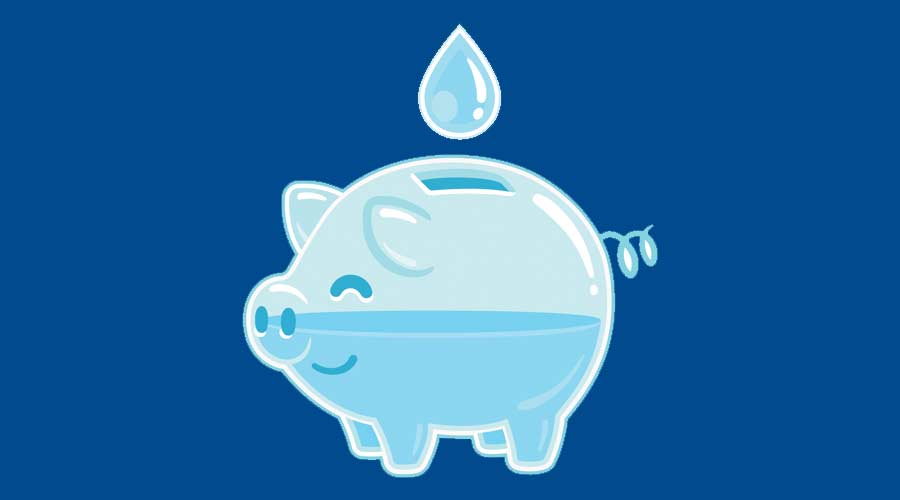
Contributed by Waterless Co.
With all the rain that fell on California and other western states this past winter, many believe water rates, which have been going up steadily for decades, might hold steady.
But according to Klaus Reichardt, “this is not the case. While many reservoirs were filled, the problem was that much of that rainwater washed into the ocean or was not captured for storage.The result is that the pressure to raise water utilities, “may have lessened, but we can expect rates to continue to go up.”
That said, an average U.S. family currently pays about $876 annually for water, based on using 100 gallons of water per person per day.
The state with the least expensive costs for water is Florida, where the average family spends an extraordinarily low charge of about six dollars per month, or about $72 per year. This is followed by Wisconsin and Vermont, which average $18 per month, $216 annually.
Those are the lucky states. On an annual basis, the ten states where consumers pay the most for water are the following:
1 West Virginia, $1,092 per month.
2 California, $924.
3 Oregon, $912.
4 Washington, $900.
5 New Jersey, $864.
6 Connecticut, $828.
7 Alaska, $816.
8 Hawaii, $768.
9 Arizona, $760.
10 Wyoming, $756.
“We must remember that these charges are for consumers,” adds Reichardt. “A manufacturing facility may spend hundreds of thousands of dollars each year for water. As their charges [for water] go up, the more we must pay for the products they produce.”
Interestingly, one of the reasons Reichard expects water utility rates to jump in the future has nothing to do with water or the lack thereof.
Instead, its infrastructure.
“States such as Florida manage to keep costs down by putting infrastructure improvements on the back burner. But you can only kick the bucket down the road so far. Eventually, it reaches a dead end.”
As to ways to beat the trend, and keep water rate increases in check, the answer, he says, is water efficiency. Water efficiency is all about reducing waste. “We waste huge amounts of water every year and this must end.”
For related content, check out this article highlighting the cities with the biggest water shortages.

 The Down and Dirty on Cleaning in Virus Season
The Down and Dirty on Cleaning in Virus Season How Surfactant Use is Expanding in Commercial Cleaning
How Surfactant Use is Expanding in Commercial Cleaning Clean Buildings Conference
Clean Buildings Conference